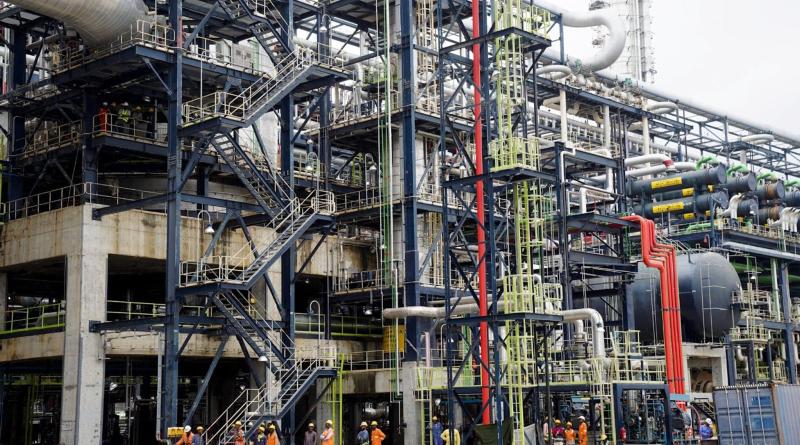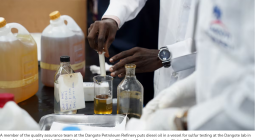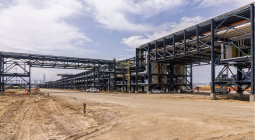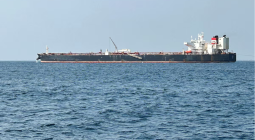Africa’s richest man scrambles to calm crisis around $20 billion refinery

LAGOS — Africa’s richest man Aliko Dangote is battling to get his $20 billion refinery in Nigeria fully functional and begin recouping returns on his investment as clashes with local regulators and oil majors spill over into a public war of words.
The Dangote Refinery was commissioned early last year to loud promises that it would end costly fuel imports by the continent’s top crude oil producer and offer affordable pump prices, without the need for a $10 billion government subsidy. The facility, which took seven years to build, is designed to refine 650,000 barrels of oil per day and meet all of Nigeria’s fuel needs when at full capacity.
But the tycoon is now embroiled in a row with Nigerian authorities that has created uncertainty around the project. Dangote and his team have accused international oil producers of unfairly selling locally produced crude to it above market prices. He is being accused by Nigerian regulators of demanding a monopoly over refined oil products.
“This is really very disheartening,” the 67-year-old billionaire told journalists this week, in an extended defense of his investments in Nigeria, which include large cement, food and fertilizer production companies. He said the refinery did not get “one single incentive” from the Nigerian government and paid $100 million to buy the over 2,600 hectares of land that it sits on in the outskirts of Lagos.
Attempts to broker a truce are underway. Nigeria’s deputy oil minister Heineken Lokpobiri said other government officials and Dangote who attended a meeting on Monday “demonstrated a strong commitment” to solve the refinery’s challenges. Separately, a group of lawmakers asked Tinubu — who, like his predecessor, is Nigeria’s oil minister — to suspend the regulator who accused Dangote of monopolistic intent.
Earlier this month, Dangote went public with a disclosure that Nigeria’s state oil company NNPC no longer owned a fifth of the refinery having failed to pay up for the full price of the stake, settling for a 7% ownership instead.
In turn, a major regulator in President Bola Tinubu’s government said the billionaire’s desire for the end of refined products imports into Nigeria is “not good for the nation in terms of energy security.” Dangote called off plans to build a new steel manufacturing plant in Nigeria in response to the claim.
Tinubu’s immediate predecessor President Muhammadu Buhari led the refinery’s ribbon cutting event when it was commissioned in May 2023. But a year later, the back and forth of contentious allegations between Dangote and Tinubu’s administrators have exposed tensions that seem to go beyond the project.
“This is a multifaceted row,” said Clementine Wallop, an analyst at Horizon Engage. The current clash features doubts raised about product quality from the refinery “but also Dangote’s standing with the federal government following tensions at the start of the year,” she said.
Officials from Nigeria’s anti-graft body EFCC raided the Dangote Group’s Lagos headquarters in January as part of an investigation into the central bank’s allocation of dollars to companies. The visit was “designed to cause us unwarranted embarrassment,” the company said at the time.
Nigerian regulators have made “sound arguments” against Dangote’s supposed desire that fuel imports be prohibited, said Adedayo Ademuwagun, who leads risk analysis in the country for Songhai Advisory.
“The job of a government is not to satisfy an investor but to ensure consumers are getting the best deal,” he said, which in this case is quality fuel at prices users are willing to pay. And Nigerian officials are “highly unlikely” to cede control of the oil industry to a private individual since the commodity shapes political power, Ademuwagun said.
Kelvin Emmanuel, an economist in Abuja, believes interest groups who have long earned wide margins from importing “dirty fuels” into Nigeria are the “cartel” behind the regulatory pushback against the refinery.
However, he is optimistic of a resolution that may include a non-compete clause barring the refinery from operating its own pump stations. Also, the lesson of these weeks is that the refinery’s survival requires it to “diversify the risk of supply” by sourcing different grades of crude from varied providers, Emmanuel said.
Anxieties over Dangote’s ongoing ordeal must not obscure the billionaire’s origin as one whose “entire fortune has been built on a beneficial partnership with the Nigerian government that has allowed him to charge astonishing prices for his product,” writes Feyi Fawehinmi, a Nigerian author.




